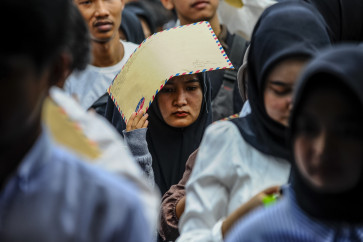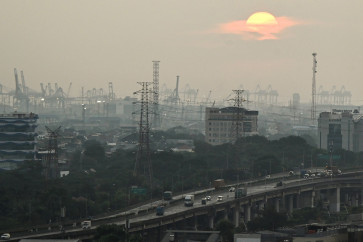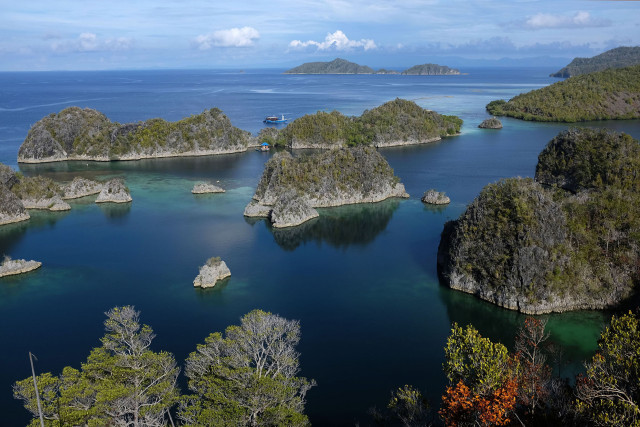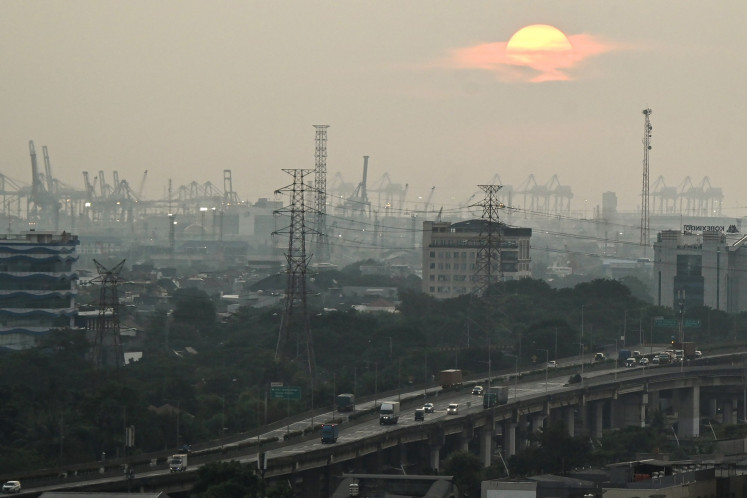Palu, paradise on the equator
City officials say Palu, set amid a valley of rolling hills and along a river streaming to the coast, is gaining acclaim for both natural beauty and its plans for development in Central Sulawesi
Change text size
Gift Premium Articles
to Anyone

City officials say Palu, set amid a valley of rolling hills and along a river streaming to the coast, is gaining acclaim for both natural beauty and its plans for development in Central Sulawesi.
"Everything is available here. Visitors will be surprised," said Palu chief councilor Andi Mulhanan Tombolotutu, referring to the city's diverse topography.
The beauty of the city is apparent when viewed from the beach near the city center while enjoying a view of the sunset and the magnificent Teluk Palu Bridge.
The bridge, built at a cost of Rp 57 billion (approximately US$6.3 million), was inaugurated by President Susilo Bambang Yudhoyono last year during his May visit to Central Sulawesi's capital city.
Similar praise came from Asian Development Bank spokeswoman Ayun Sundari, who told The Jakarta Post she found solace during her recent stay in Palu.
"Its true image is totally different from what I heard. I found solace here. My heart is at peace. It's really amazing and very beautiful," she said.
Ayun said she had to sign papers at the U.S. Consulate in Surabaya before the trip assuring her safety due to the rumors about strife in the area.
"Frankly, I regretted having to sign the papers. It turned out that Palu is very beautiful."
Tono Supranoto, a senior aide of the coordinating minister for people's welfare, also gave his thumbs-up to the city's beauty.
"If I showed this photos to my friends, they certainly wouldn't think I was in Palu," he said of a picture he'd taken of Palu's coastline.
Mayor Rusdy Mastura proclaimed the city the "Malay Awakening Center", and the northern gateway to Indonesia.
"The city will become the showcase for eastern Indonesia civilization," said Rusdy.
To accelerate urban development, the municipality has formed a team and prioritized seven development programs.
Programs include the establishment of a technical implementation unit and vocational school specializing in rattan technology, a laboratory for cacao cultivation and research, measures to revitalize beaches, information technology advancement and the construction of industrial areas.
"We will prioritize these programs to develop Palu as the northern gateway to Indonesia," said team leader and chairman of the city development planning board (Bappeda) Dharma Gunawan.
Mulhanan said Central Sulawesi still lagged behind other provinces in terms of human resources, as graduates from regular schools in Palu were not skilled enough to exploit its riches.
"That's why a rattan school is very important. It will be a vocational school," he said.
The Palu agency for industry, trade, cooperatives and investment said export revenues from polished rattan had dropped in recent years. The city expects only finished rattan products to be exported in the future.
The export of polished rattan declined from 9.5 million tons in 2000 to 9.2 million in 2001, 8.6 million tons in 2003 and only 267,500 tons in 2006.
Mulhanan said the municipality also would immediately build a disaster mitigation system in each subdistrict.
He said industrial and residential areas would benefit from power, telecommunications, clean water, sanitation, drainage and transportation in accordance with the city spatial plan. The city would also be free of pollution, and waste or byproducts would be processed into value-added products.
Mulhanan said air and sea ports and container terminals would meet national standards, and the city would also be free of floods.
"We don't wish to be involved in overly ambitious programs. I think these programs are quite feasible and can be implemented in the next few years."









